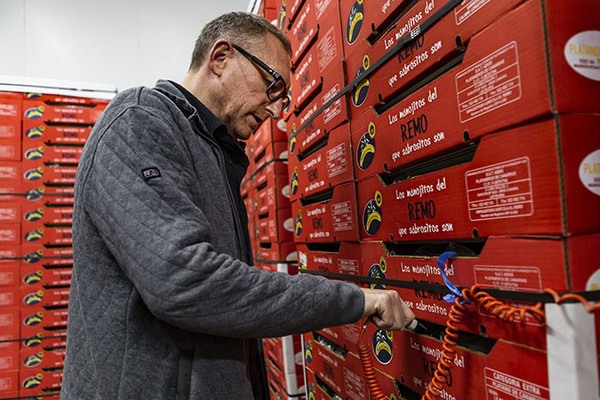The price crisis affecting Canary bananas has been ongoing since July and growers in the Canary Islands are seriously affected by it.
"The supply of Canary bananas is still much higher than the demand, which is usually at its lowest in July and August, coinciding with the summer holiday period," says José María Ruíz, manager and founder of Plátanos Ruiz, a company specializing in the ripening and distribution of bananas for almost 60 years and based in the Mercabarna wholesale market of Barcelona.

High temperatures and climate change are contributing to overproduction on the islands, with the weekly supply exceeding the demand. "For a few months, in April, May and June, we had a shortage of produce and very strong demand, but in July it started to get too hot, so the production accelerated and the market went downhill," says José María Ruíz.
According to Asprocan, some 7.5 million kilos of Canary bananas are expected to hit the market on week 34; however, the market can only absorb around 5 million kilos, and at low prices for producers. This has led to the destruction of large quantities of bananas, although retail prices remain high. In fact, another million kilos are expected to be destroyed this week, bringing the total volume of discards by August to three million kilos.
José María Ruiz says that "before the outbreak of the pandemic, the large-scale retail sector accounted for 60% of banana sales in the Canary Islands, but now that share has gone up to around 80%. This, in part, is causing some bottlenecks in the marketing, and sales prices for the end consumer remain high, compared to the prices paid at source," he says.

Besides, according to the wholesaler, imported banana prices now stand above those of Canary bananas, and the demand remains stable. "Generally, cheaper prices don't lead to greater sales of imported bananas." Jose María Ruíz also says that the market share of imported bananas has increased from 50% to almost 60% in recent years in Mercabarna, the second largest wholesale market in Spain and the largest in terms of fresh food sales volume in Europe. "It seems that imported bananas will continue gaining ground in the coming years," he says.
The situation in the Canary banana market could improve with the start of the school year. "Children going back to school always acts as a catalyst for normality for us, as it means that many of our clients are coming back," says the Manager of Plátanos Ruiz, who specializes in traditional ripening to obtain a premium product. Canary bananas account for 80% of its total volume, compared to the 20% of imported bananas.
 For more information:
For more information:08040 Barcelona, Spain
Tel.: +34 933361411
[email protected]
www.platanosruiz.com










